
In today's NHL, one which rarely touches upon the early roots of the sport, much of the game's history is pushed aside by every media form covering the game. Wouldn't it be interesting, if say, The Hockey News dedicated an entire special issue to pre - Original Six hockey. Or if HNIC ran an appreciation of those times prior to the NHL's creation, rather than a cliched interview with an out breath player with little to say. Maybe a major hockey card company could create a replica set that would encaspulate ( Thanks! Chuck!) the game's earliest era's.
We often hear talk and read articles of our favorite current NHL team's Stanley Cup conquests, but the truth is that only 17 current franchises out of 30 can lay claim to having won the Cup. Eighteen, if you count a previous Senators incarnation.
From 1893 to 2007, there have been an incredulous 121 Stanley Cup Champions. If you do the math, subtracting the four winningest franchises ( Montreal - 24, Toronto - 11, Detroit - 10, and Ottawa - 9), there remains 77 Cup winners to explore the histories of.

While recent Cup winners are currently in the forefront of today's NHL news, and the respective Oilers and Islanders dynasty's of the 1980's are fresh in the memory of anyone over the age of 35, much has been forgotten by the game in respect to 100 years of challenges
I love watching the expressions of younger fans when I mention that teams from cities as distinct and as diverse in size and culture such as Quebec, Kenora, Winnipeg, Victoria, and Seattle have all won Stanley Cups.
It was hockey at its purest then. In it's purest origins, players were larger than life characters who played for the love of the game. There was a simplicity to the sport, combined with an intrigue that can never be recaptured.

In the game's birth stages, many owners were simply entrepreneurs latching onto what was a new fad. Many of the days money men came from boxing or horse racing backgrounds, and new the scent of a quick buck. Hockey in the day, was a skill that essential pitted speed and talent versus goonery and bloodshedding thuggery. Looking back upon it, it is little wonder that it was once termed a "mug's racket".
When one seeks out such origins, an appreciation for today's game evolves. The players who populated the game then, remain similar but unique prototypes for today's stars.
As a Montreal Canadiens fan, I was happy to hear that a motion is underway in the city to go beyond honouring the present day Canadiens, with a Walk of Fame of sorts that would pay tribute to the city's forgotten hockey past. Whichever form the display eventually takes, it should be quite an unveiling.
I've often said to younger fans that culture and history are only irrelevant should they choose it to be that way. Those who pursue their intrigue are often richer fans for having taken the journey.
Of course, not every city has a hockey history comparable to Montreal's, much less the Canadiens'. In Stanley Cup conquests, the city nearest to Montreal in wins would be Toronto with 14, three by way of the 1913-14 Blueshirts, the 1917-18 Arenas, and the 1921-22 St. Pats.
Curiously, Montreal's defunct teams, comprising of the AAA, the Victoria's, the Shamrocks, the Wanderers, and the Maroons combine for 17 Stanley Cup wins. Considering that these teams that have been inexistant for almost 70 years, still have a better combined total than their nearest rivals testifies to the notion that the exploits of these athletes warrant a more permanant and glorious place.
A Walk Of Fame is a start, but an enshrining in the Canadiens Bell Centre home would be more fitting nod, considering that in some ways, it all helped contribute the everlasting popularity of hockey in Montreal.
With the HHOF centralized in Toronto for common sense and commercialism reasons, perhaps having a Montreal Hockey Hall Of Fame would be the fitting way to grasp the history of the city best.
In recognition of those 17 Cups winners, here are their profiles and pictures in chronological order, as per the HHOF website.
It doesn't even begin to tell the whole story!
1892-93 Montreal AAA

The Montreal AAA club captured the first Stanley Cup championship by virtue of finishing atop of the AHA standings with a record of 7-1-0. The Ottawa Generals finished second with a 6-2-0 mark. Once the AAA had been declared the official holders of the Stanley Cup, under the rules laid out by Lord Stanley, any Canadian hockey team could challenge for the trophy, but no team dared. Consequently, the silver bowl donated for hockey supremacy remained in Montreal.
1893-94 Montreal AAA

Montreal AAA were crowned the Stanley Cup champions for the second consecutive year. In what must be termed the first Stanley Cup playoff game ever, the Montreal AAA beat the Montreal Victorias 3-2. Five days later, the AAA club downed the Ottawa Generals 3-1. Montreal AAA forward Billy Barlow scored twice in each post-season contest as the AAA successfully defended their title.
1894-95 Montreal Victorias

Although the Montreal Victorias finished first in the Amateur Hockey Association (AHA) and were prepared to vie for the Cup as league champions, they were in for a rude awakening. The Stanley Cup trustees had already accepted a challenge from the 1894 champion Montreal AAA and Queen's University. In a most unusual decision, the trustees decided that if the Montreal AAA defeated Queen's University, the Victorias would be named Stanley Cup champions. The AAA did indeed win the game, 5-1, and the Victorias were crowned champions.
1895-96 (December) Montreal Victorias

After losing a challenge earlier in the year to Winnipeg, the Montreal Victorias wasted in requesting a rematch in order to bring back the Cup to Montreal. However, satisfactory ice conditions could not be ensured and the series was delayed. The Victorias of Montreal had to wait until December of that year for suitable ice. On December 30 in Winnipeg, Montreal got their revenge, defeating the Winnipeg 6?5 in a hard fought battle. Montreal overcame a 4-2 halftime deficit to tie the contest at five, before Ernie McLea potted his third of the game in the closing seconds.
1896-97 Montreal Victorias

Victorias from Montreal were the champions for the third consecutive season in the Amateur Hockey Association. The Vics accepted a challenge from the Ottawa Capitals, winners of the Central Canada Hockey Association. What was originally billed as a three-game series, ended up being much shorter. Stanley Cup trustees ended the series after one game because both teams were unevenly matched. Montreal had won the opener 15-2.
1897-98 Montreal Victorias

The Amateur Hockey Association had disbanded prior to the start of the season with the new Canadian Amateur Hockey League taking its place as the top hockey league the country. The five former AHA franchises now comprised the new league. Once again the Montreal Victorias proved supreme. With a record crowd of over 7,000 people at the championship game, the Victorias defended their Cup title as they defeated Winnipeg in back to back games.
1898-99 (February) Montreal Victorias
The Amateur Hockey Association had disbanded prior to the start of the season with the new Canadian Amateur Hockey League taking its place as the top hockey league the country. The five former AHA franchises now comprised the new league. Once again the Montreal Victorias proved supreme. With a record crowd of over 7,000 people at the championship game, the Victorias defended their Cup title as they defeated Winnipeg in back-to-back games. The Victorias are not often mentioned in this regard, but they were unboubtably hockey's first dynasty.
1898-99 (March) Montreal Shamrocks

The Montreal Shamrocks changed their name from the Montreal Crystals prior to the 1895-96 season as they became affiliated with the Shamrock AAA. In order to keep the senior league Ottawa Capitals out of the AHA, teams formed a new league called the Canadian Amateur Hockey League. The Shamrocks won the league title after a ferocious1-0 win over the Victorias on March 1 before 8,000 fans. The Sharocks defeated a team of university students from Queens 6-2, in their only challenge of the winter. Harry Trihey scored the game winner and Jim McKenna was the goaltender. It was an odd game that was plyed under Ontario rules for the first half and Quebec rules for the second half. This came under a provinsion for all Cup challenges - in case where both teams could not come to terms on which regulations to play under, both would be used.
1899-1900 Montreal Shamrocks

A late season challenge from the Winnipeg Victorias saw the Montreal Shamrocks play three games against the Manitoba champions. Playing all three games in five days, the Victorias won the first one, and the Shamrocks claimed the other two to remain Stanley Cup champions for another challenge. All three games were decided by one-goal margins. Montreal's Harry Trihey was the offensive star with seven goals, including three in the finale. Following the conclusion of the 1900 season, Montreal accepted a challenge from the Halifax Crescents of the Maritime Hockey League. In two games, the Shamrocks convincingly defeated Halifax by a combined total of 21-1. Montreal forward Arthur Farrell set a new Stanley Cup record by recording four goals in each of the two games.
1901-02 (March) Montreal AAA

The Montreal AAA club captured the Canadian Amateur Hockey League championship with their 3-0 victory over the Montreal Shamrocks on February 26th and quickly a challenge was sent to the Winnipeg Victorias, the defending Cup champions, and a best-of-three series was set for mid-March. The first game was played in atrocious conditions with pools of water on various portions of the ice, yet, the fans showed up in droves, packing the arena, while paying up to $25 to see their heroes. The Vics did not disappoint, winning the first game, 1-0, on a goal by Tony Gingras. Montreal stormed back in game two, hammering Winnipeg, 5-0, with goaltender Billy Nicholson earning the shutout. The AAA jumped out to a quick 2-0 lead in the deciding third game and then buckled down to play stellar defence. Despite a constant pounding by the much larger Winnipeg players, Montreal stood their ground, allowing only a single goal, while earning the nickname, "Little Men of Iron". The Stanley Cup had returned to Montreal, now belonging to the AAA organization for the first time since 1894.
1902-03 (February) Montreal AAA
The Montreal AAA club captured the Canadian Amateur Hockey League championship with their 3-0 victory over the Montreal Shamrocks on February 26th and quickly a challenge was sent to the Winnipeg Victorias, the defending Cup champions, and a best-of-three series was set for mid-March. The first game was played in atrocious conditions with pools of water on various portions of the ice, yet, the fans showed up in droves, packing the arena, while paying up to $25 to see their heroes. The Vics did not disappoint, winning the first game, 1-0, on a goal by Tony Gingras. Montreal stormed back in game two, hammering Winnipeg, 5-0, with goaltender Billy Nicholson earning the shutout. The 'AAA' jumped out to a quick 2-0 lead in the deciding third game and then buckled down to play stellar defence. Despite a constant pounding by the much larger Winnipeg players, Montreal stood their ground, allowing only a single goal, while earning the nickname, "Little Men of Iron". The Stanley Cup had returned to Montreal, now belonging to the 'AAA' organization for the first time since 1894.
1905-06 (March) Montreal Wanderers

Finishing tied in the ECAHA standings with the Montreal Wanderers, the Ottawa Senators were forced to face their third challenge of the season, a two-game total-goals series for the Cup. Game one proved to be an upset as the Wanderers, playing at home and led by Ernie Russell's four-goal performance, hammered the Senators and netminder Billy Hague 9-1. Game two saw the defending champions needing at least an eight-goal victory, a huge and unlikely undertaking. Picking up Percy Lesueur from Smith Falls to play net, the Senators would allow the first goal of the game. Now down for a combined score of 10-1, Ottawa slowly chipped away at the lead and with every goal the crowd became louder, until with 10 minutes remaining, Harry Smith scored his fourth goal, giving Ottawa a 9-1 advantage in game two and a tie overall.
Realizing they were in trouble the Wanderers began to fight back and were rewarded when Lester Patrick scored two goals, ending the game with a 9-3 loss, but winning the series 12-10. After finally losing possession of the Stanley Cup, the Senators dynasty was given the nickname "The Silver Seven". The name was not for any seven players in particular, but for all members of the club that had participated in their three-year reign as champions. Prior to the start of the 1906-07 ECAHA season, the Montreal Wanderers were forced to face a challenge from a team of amateurs that played in New Glasgow, Nova Scotia. The Nova Scotians were a little hesitant at first of playing the professionals, but eventually made the trip to Montreal and were easily handled in both games by scores of 10-3 and 7-2.
1906-07 (March) Montreal Wanderers

The Montreal Wanderers finished out the ECAHA season with a perfect 10-0 record and immediately sent a challenge to play the newly crowned champion, Kenora Thistles. The two-game, total-goal series would be played in Winnipeg after numerous disagreements between both clubs and the Cup Trustees. Kenora, fresh off winning their league championship, had brought in two players (Alf Smith and Harry Westwick) from Ottawa, which had caused most of the bickering. Even with the two Ottawa players, the Wanderers proved to be too much, carving out a 7-2 victory, led by Ernie Russell's four goals. The Thistles fought back hard in game two, but the five goals were too much to overcome, so despite winning the game, 6-5, the Stanley Cup was quickly returned to the Wanderers.
1907-08 Montreal Wanderers

Early in the 1908 season, the Montreal Wanderers were forced to play the Ottawa Victorias in a two-game, total-goal series. The Victorias had finished third in the FAHL the previous season, but were named champions when the Montagnards and Cornwall both withdrew from the league. Despite missing numerous players from the previous season and not truly winning the championship, the Trustees allowed the challenge to stand. Ernie Russell would score 10 goals during the two games for the Wanderers as they easily handled their opposition by scores of 9-3 and 13-1. Three days after defending their ECAHA championship, the Wanderers would face the Manitoba Hockey League champion, Winnipeg Maple Leafs; again in a two-game, total-goal series. Again the Wanderers dominated the opposition and for the first time in Stanley Cup play, every player for the winning team scored a goal (excluding the goaltender) as they skated to a 11-5 victory in game one. Montreal defended their title with an uninspired 9-3 win during game two.
What proved to be the Wanderers biggest challenge of the season, came from the Toronto Maple Leafs of the newly former Ontario Professional Hockey League. The one-game sudden death match-up was a seesaw affair that had the score tied on four separate occasions. The Wanderers would prevail, 6-4, on two late goals by Ernie Johnson and Bruce Stuart (who replaced an injured Ernie Russell).
Prior to the beginning of the 1908-09 season, the Cup Trustees accepted a challenge from the Alberta Hockey League champion Edmonton Eskimos, who had defeated the Manitoba Hockey League champions the previous spring. The Eskimos traveled East, bringing an all-time high of six ringers to play against the champions. Harry Smith led the way for the Wanderers, scoring five times during an easy 7-3 victory. Two Edmonton players were put back in the Eskimos lineup for game two and proved to be the difference, as the group recording five of Edmonton's seven goals during a 7-6 victory. Although a win, it wasn't quite enough and the Wanderers claimed a 13-10 total goals victory to defend the title.
1909-10 Montreal Wanderers

When the ECHA went under, teams were forced to join the National Hockey Association for the 1909-10 season. Similar to the previous season, it was a closely fought battle all year between the Ottawa Senators and the Montreal Wanderers. The two met twice during the regular season and by virtue of Montreal's two victories, 3-1 and 7-5, the Wanderers were crowned champions of the NHA capturing the inaugural O'Brien Trophy to take possession of the Stanley Cup. The Wanderers then accepted a Cup challenge from Berlin, who were champions of the Ontario Professional Hockey League. The one-game sudden death match-up was no contest. Ernie Russell and Harry Hyland led the Wanderers, combining for score seven goals en route to a 7-3 victory.
1925-26 Montreal Maroons

The 1926 Stanley Cup finals were the first to be played in the legendary Montreal Forum. The Montreal Maroons and netminder Clint Benedict were able to shut out the Victoria Cougars in three of the four games played. This victory for Montreal would mark the end of an incredible era in hockey. From this series on, the NHL took control of the Stanley Cup, which, since 1893, had become the most sought after prize in all of sports. From this year on, only National Hockey League teams could compete for the Stanley Cup.
1934-35 Montreal Maroons

TheKid Line was at its zenith, with Charlie Conacher winning the scoring championship. After finishing first in the Canadian Division, the Leafs rolled over the American Division's first place finisher, the Boston Bruins, to earn the right to play in the Stanley Cup final. The New York Rangers chased the Montreal Canadiens, winning their two game total goal series 6 to 5. But the Montreal Maroons experienced a major shock when their two game total goal series with Chicago ended with both teams scoreless at the end of regulation time of the second game. Going into overtime, Chicago's Lolo Couture struck Dave Trottier on the head, and was waved to the penalty box with a major penalty. Seconds later, the Maroons' Baldy Northcott scored to give Montreal the series win. The Maroons then prevailed over the Rangers and advanced to the final against Toronto. It was the first all-Canadian final since the Montreal Maroons played the Victoria Cougars for the Stanley Cup in 1926. But the best of five series took just three games, as the Montreal Maroons beat the Leafs to win the Stanley Cup. The Maroons had previously won the Cup in that same 1925-26 all-Canadian final. For Maroons' coach Tommy Gorman and defenseman Lionel Conacher, it was their second consecutive Stanley Cup. Both were on the championship Chicago Blackhawks club in 1933-34.










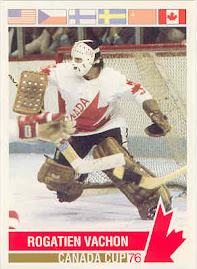
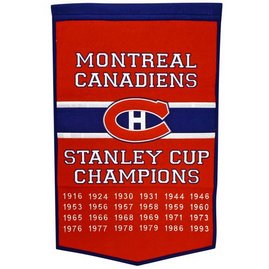







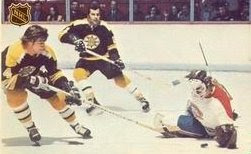



















































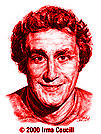



































































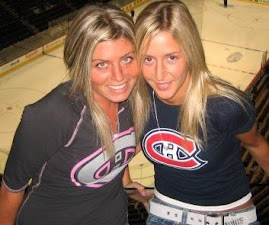


















No comments:
Post a Comment